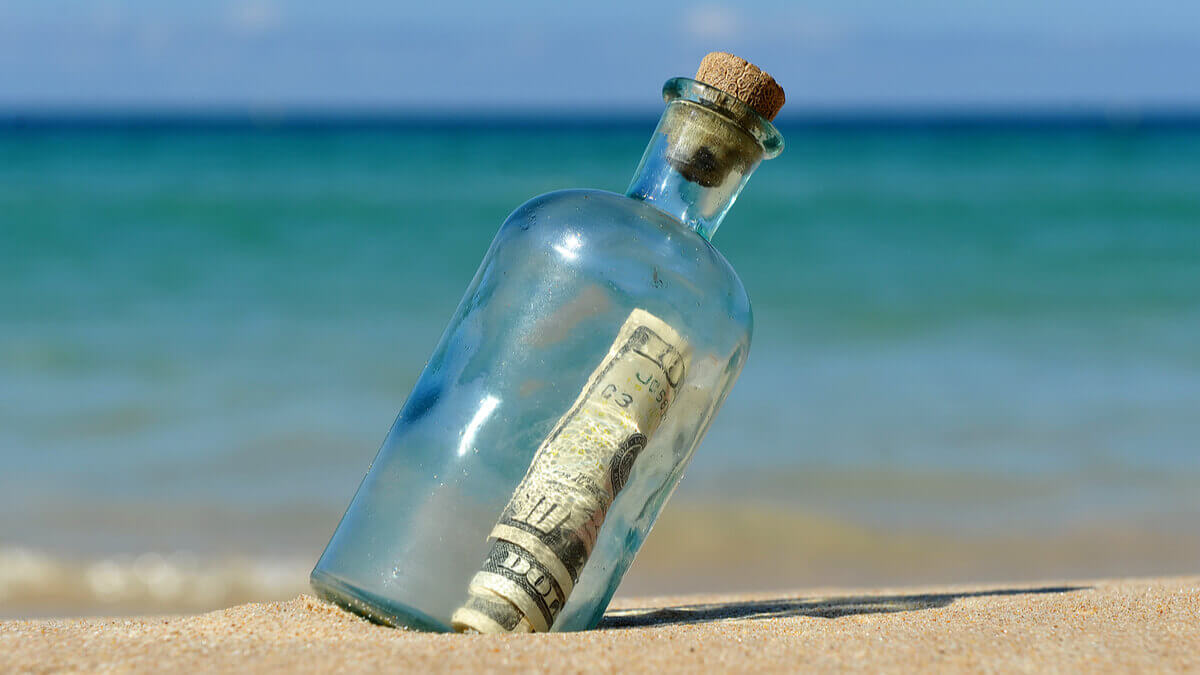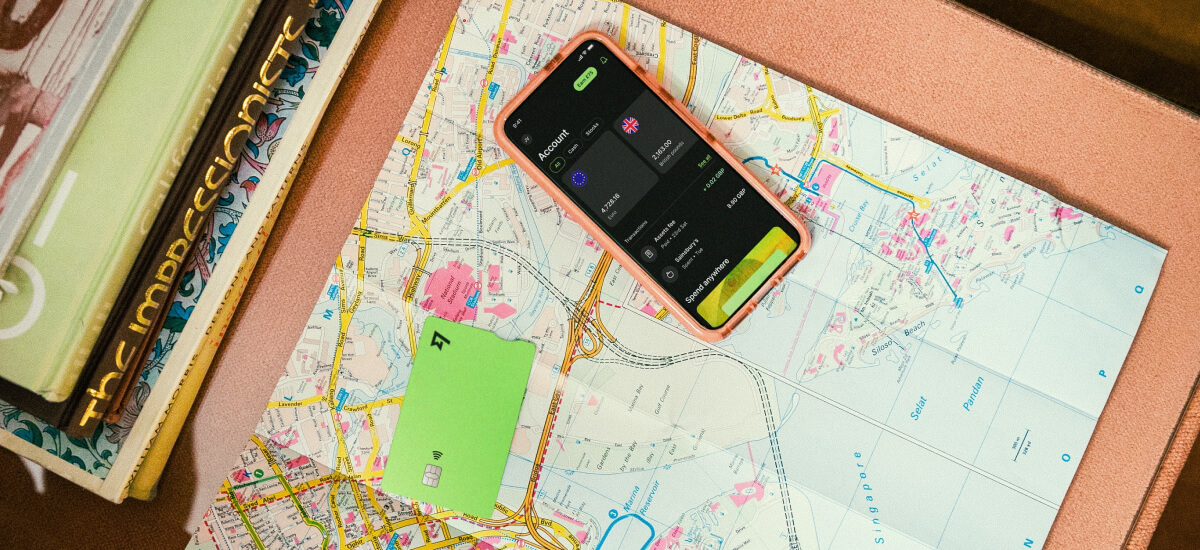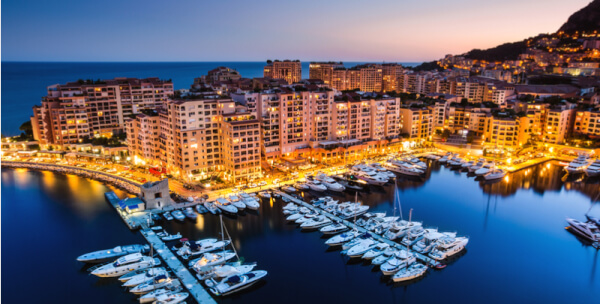How to open a bank account in Costa Rica as a foreigner: US guide
Learn all about opening a bank account in Costa Rica as an American, including costs, requirements, and alternatives.

There’s a perception about offshore accounts that many people view them as only for savvy—and perhaps shady—businesspeople and accountants.
But the truth is that anyone can legally open an offshore account in a matter of hours with a little research and determination.
This article dispels some myths about offshore accounts by telling you what they really are and how you can open one, if you’d like to.
However, if you’re already living and/or working abroad or planning to move abroad, why not use the world’s most international account?
A Wise account is perfect for people who move between countries for work or make regular trips abroad can hold multiple currencies, make direct debits, have access to several bank details, and use an international debit card—but more on this later.
Open a free Wise account today
| 📝 Table of contents |
|---|
The simple definition of offshore banking is that it is banking done outside your home country. The term encompasses companies and individuals who invest and do business with international banks.
Over the past 50 years, Switzerland and the British territories of Bermuda and the Cayman Islands became renowned hubs for offshore banking. But in recent years, Ireland, Belize, and the African nation Mauritius have also come into the spotlight.
As stated, many people have a perception that offshore banking is only for the rich, accountants, or wealthy criminals. But while those groups may use them, offshore banking itself is not an illegal activity if you don’t use one as such—like for tax evasion or money laundering.
For example, it’s legal to put your money in countries that have different banking systems—if you follow the rules and regulations of the foreign and United States governments.

People use offshore banks for a variety of legitimate reasons like doing business or having investments outside of their home country or just having an account somewhere they spend a lot of time.
Offshore accounts make things easier for you to honor financial obligations in a foreign country—sometimes multiple. They’re a useful asset for people who take and make international payments regularly and for those who make a lot of international transfers.
Most expats living abroad use bank accounts in both their home country and in the country where they live. You could consider opening an account in another country if you want an efficient way to manage money abroad and possibly save and invest as well.
Here’s a rundown of some common reasons you would have an offshore account:
| If any of those reasons apply to you, Wise could be a great asset for your finances. With a free Wise account, you can get bank details in 10 currencies, which will allow you to pay and get paid just like a local. Plus, you can convert and hold over 40 currencies. |
|---|
Get a free Wise account with bank details

Yes. There’s no law that prevents US citizens from opening an offshore bank account.
However, if you intend to open an offshore account, it’s important to be aware of the tax implications associated with the account—both reporting and possible payments.
The US government passed the Foreign Account Tax Compliance Act—FATCA—in 2010 as a response to the 2008 financial crisis.
And while the law was created as a means for more transparency with global businesses, it also requires that US citizens—whether you’re at home or abroad—report foreign holdings on their annual tax returns if they meet certain requirements.
Also, if you have more than $10,000 in offshore accounts, you must submit a Financial Crimes Enforcement Network—FinCEN—form 114, Report of Foreign Bank and Financial Accounts—FBAR—with your tax returns.¹
Note that this is a combined total on all offshore accounts.
If you’re thinking about opening an offshore bank account, be aware of the IRS rules and regulations. You may need to file both the FinCEN form 114, FBAR and the FATCA form if you qualify.
Fortunately, the IRS offers a comprehensive comparison table of the FATCA and FinCEN rules, so you can determine if and what you need to report.

Opening an offshore bank account isn’t a complicated process. In fact, it’s a lot like opening an account at a local bank in the US in that the financial institution will require a lot of the same information, like:
And like your local bank, they’ll require you to prove this information using a government issued ID—passport or driver’s license—and something like a utility bill or something similar.
You also may need to prove your income and investments with additional financial statements dating back anywhere from 6 to 12 months.
In the statements, they’ll review your transactions and look to see that you have a good record with your bank. The bank may also inquire as to what you intend to use the account for. This may seem invasive, but there has been increased international pressure to prevent illegal activity.
If you can provide all of that information, you should have no trouble opening an offshore account.
Generally, most banks require a couple hundred US dollars and the documentation listed in the previous section. If you can meet those requirements, then you should be able to open an account in a matter of days.
But at only around $200 to $300, you may be thinking, “How do offshore banks make money then?” It’s a valid question.
Most offshore banks make money from foreign transaction fees when you transfer larger amounts of money into the bank.
Also, these financial institutions typically provide other financial services like in-house investments, brokerage accounts, and wealth management services that net bigger profits than their banking services.
Fortunately, it’s now easier than ever to research, investigate and transfer funds to any offshore bank you may consider a good fit for your needs.

When you open an offshore bank account, many times you have the option of choosing which currency in which you want to hold funds. However, holding funds in different currencies can come with consequences.
For example, if you earn interest on deposits in a foreign currency, you could create foreign tax liabilities. Also, if you’re constantly depositing and withdrawing in different currencies, you could be hit with exchange rate upcharges.
Remember, this is how offshore banks often make their money, so be sure to research the fee structure and upcharges of any potential offshore bank.
| If you don’t like the rates offered by banks, look into a Wise multi-currency account. Wise allows you to move money between countries and exchange currencies at the mid-market rate. Plus, you can always pay in the local currency when you’re abroad. |
|---|
People don’t often fly down to the Caribbean with thousands of dollars in their pocket, so most offshore bank accounts are almost exclusively funded via international wire transfer.
However, the ACH or domestic wire transfer system that allows you to transfer money for free in the US typically isn’t available when transferring money into an offshore account.
While it’s simple to make the transfer—usually just a point and click on your computer—account holders are often subject to international wire transfer fees when sending and receiving funds.

While depositing money may have few avenues, withdrawing your money is another story. Offshore banks provide a plethora of ways to withdraw your funds as a means of creating convenience for customers.
Most offshore banks provide international debit cards that allow you to access funds anywhere you go. This is another element you’ll need to research, as fees tied to using the card can add up quickly. If you’re going to use an ATM, it’s best to withdraw large sums of money at once to minimize the fees.
You may be able to get checks from the offshore bank, but it’s typically not preferred as the checks may not be accepted locally.
Most individuals with an offshore account use both a domestic and an offshore account in order to transfer funds locally for easy access. Doing things this way enables you to have more security and convenience with access to your local bank.
| If you’re looking for a debit card where you can spend money with no foreign transaction fees, a Wise Multi-Currency Card is a solid option. With your Wise Multi-Currency Card, you can hold over 40 currencies for free and send money right from your accounts. It’s designed for people who live, work, travel, or support family around the world—get a card today. |
|---|
Get a Wise Multi-Currency Card

There are a lot of viable reasons for you to want a bank account abroad.
You possibly live or work abroad or are planning to retire abroad. Perhaps you travel regularly to other countries because of work or just vacation a lot. Maybe you're a freelancer dealing in foreign currencies.
Whatever the reason, take advantage of the world’s most international account.
A Wise account gives you access to account details in 10 currencies, so you can pay in the local currency and get paid just like a local. Use your bank details to receive money from 30 countries—for free—hold and convert funds in over 50 currencies, all with no local details required.
Plus, you can convert those currencies at ridiculously low fees that are on average 7x cheaper than banks and other providers. Start receiving money from all over the globe for free and convert to the currency you need with Wise.
Yes. It is legal to have an offshore bank account so long as you abide by the laws, rules, and regulations of both the US government and offshore jurisdictions of the account.
Offshore banking is just a blanket term for having a bank account outside of your home country. The same applies to an offshore company, it’s a company operating outside the jurisdiction of its headquarters. Neither of these practices are illegal for US citizens.
There is no easy answer whether offshore bank accounts are safe or not.
What we can suggest is that you use resources available to do your due diligence before putting money into any foreign bank account or investment. Some offshore banks may not offer the same asset protection as the US banking system.
The FDIC uses the CAMELS system to rate banks in the US and abroad, and while their rankings are confidential, the system they use is a good template for researching any bank.
CAMELS stands for:
If you use your resources to research this information on any potential offshore bank, you should be able to make an informed decision.
All sources checked on 24 September 2021
*Please see terms of use and product availability for your region or visit Wise fees and pricing for the most up to date pricing and fee information.
This publication is provided for general information purposes and does not constitute legal, tax or other professional advice from Wise Payments Limited or its subsidiaries and its affiliates, and it is not intended as a substitute for obtaining advice from a financial advisor or any other professional.
We make no representations, warranties or guarantees, whether expressed or implied, that the content in the publication is accurate, complete or up to date.

Learn all about opening a bank account in Costa Rica as an American, including costs, requirements, and alternatives.

Learn all about opening a bank account in Monaco as an American, including costs, requirements, and alternatives.

Need to close Fidelity bank account? Our guide covers requirements, fees, steps, timelines, and best practices to avoid errors and protect your money.

Need to close Capital One bank account? Our guide covers requirements, fees, steps, timelines, and best practices to avoid errors and protect your money.

Need to close Santander bank account? Our guide covers requirements, fees, steps, timelines, and best practices to avoid errors and protect your money.

Need to close PNC Bank account? Our guide covers requirements, fees, steps, timelines, and best practices to avoid errors and protect your money.